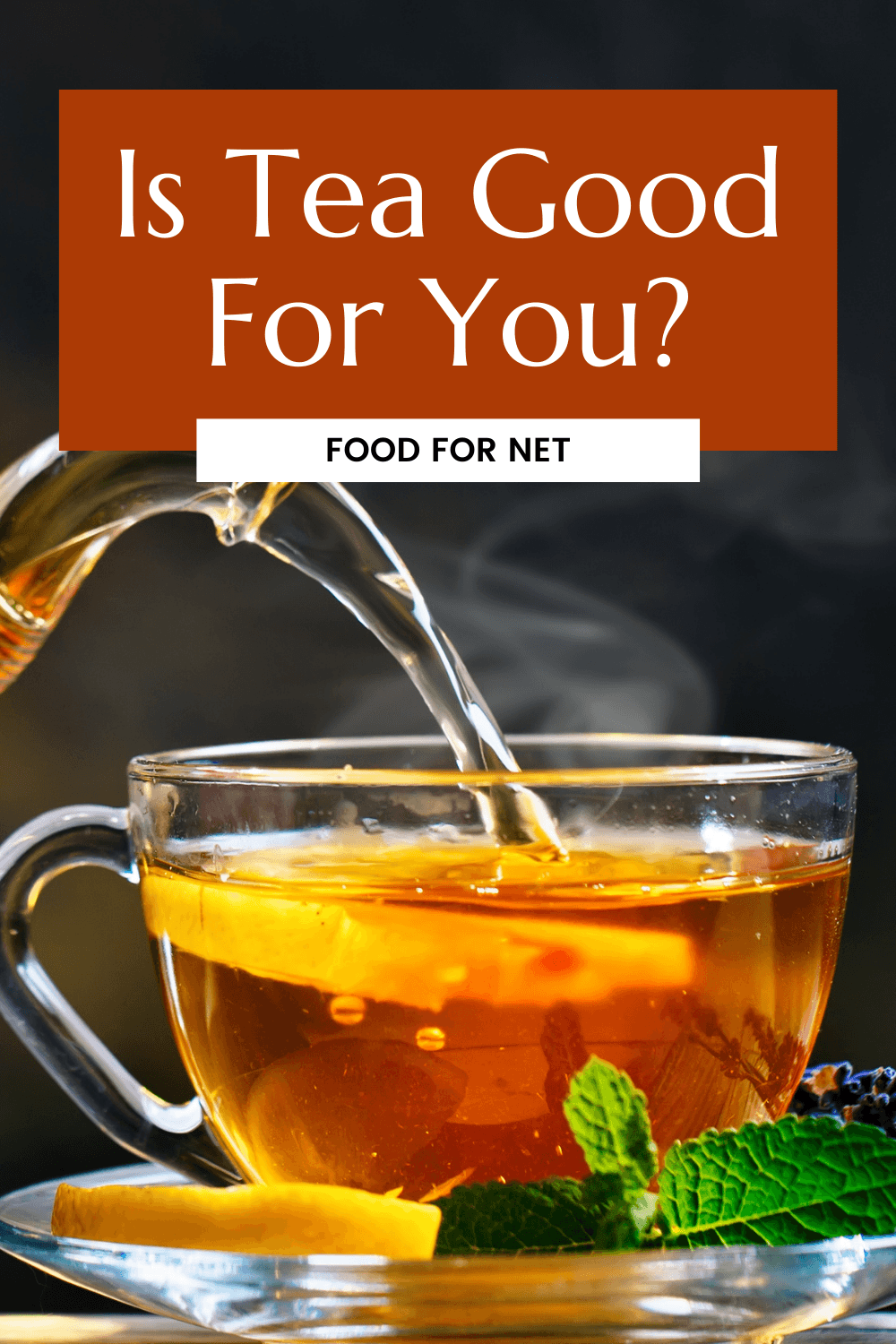
Tea has a long history that spans many countries and cultures. While we still don’t precisely know who invented tea or when, we know that tea has been consumed for thousands of years, with widespread use beginning somewhere around 200 AD. With such longstanding traditions, there seems hardly any need to ask, is tea good for you?
Still, the question is an important one. After all, if you’re doing to drink anything regularly, it’s important to know what to expect. There are also some surprises surrounding tea.
While the drink is a good choice for most people, it isn’t always as healthy as you might expect. Some people might find they need to focus just on decaffeinated tea, while others may need to decrease their tea intake or cut it out altogether.
If you’re among the majority, then go ahead and enjoy your tea. You can even get creative and pair your tea with pastries or other desserts, using similar principles as with wine pairing. Why not join a tea of the month club to get your tea journey started? Such clubs are an amazing way to experience many types of tea.
A word to the wise though. Watch out for products like loaded tea, as these are heavily processed and offer a different set of benefits and risks than regular tea.
Is Tea Good For You?
- Types Of Tea
- Benefits Of Tea
- Risks Of Tea
- Is Organic Tea Healthier?
- How Much Caffeine Is In Tea?
- Is Decaffeinated Tea Healthy?
- Which Type Of Tea Is Best?
- Final Thoughts
Types Of Tea
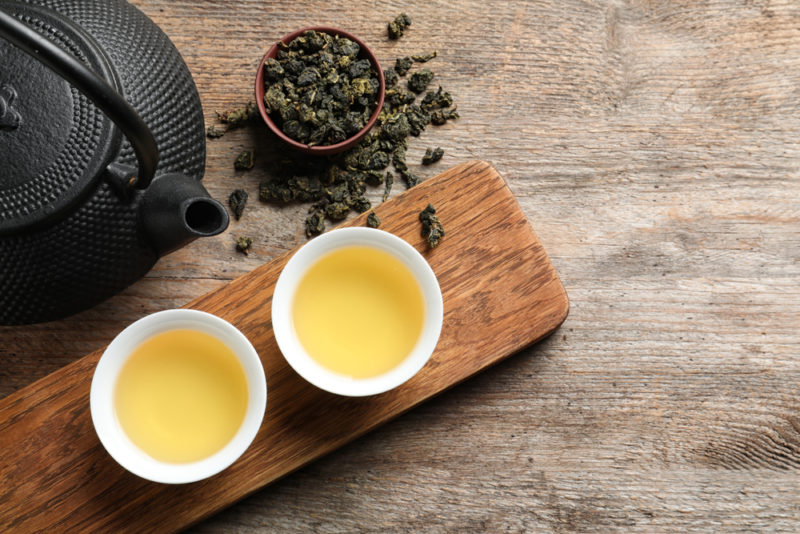
True tea comes from the leaves of the Camellia sinensis plant and is thought to have been consumed since as far back as 2700 BC. Of course, tea’s presence in Western cultures is much more recent. We’ve only been drinking it since the 17th century or so.
While tea all comes from the same plant, there are distinct differences in how the tea leaves are processed, which leads to different flavors in the final drink. The processing approaches influence some of the compounds in the tea too.
This is why we first need to talk about how the teas are different from each other.
Black Tea
To make black tea, the leaves from Camellia sinensis are fully oxidized. This creates a rich and tannic drink. Of course, the exact flavor is influenced by where the tea plants are grown and the specific type of black tea that you’re focusing on.
The tea can be oxidized in two ways. The first involves withering and rolling the leaves before they are oxidized, while the second uses machinery to cut, tear, and then curl the leaves before they’re oxidized.
The first type tends to be more expensive and the flavor can vary from batch to batch. You may find it in tea bags or sold loose leaf. On the other hand, the cut and tea method is mostly used for black tea sold in tea bags because it creates much smaller pieces of tea leaf.
Despite the name, black tea isn’t black when it’s brewed. It has an amber color instead, which is why it is sometimes known as red tea.
Pu-erh Tea
Pu-erh tea is different than most other types of tea, as the tea leaves themselves are fermented. You’ll often find it sold as part of a densely packed cake of tea leaves, but it can also be sold in loose leaf form or even in tea bags.
The tea tends to have a rich and earthy flavor, which is often quite strong. The flavor profile makes the tea an excellent choice for anyone who loves coffee.
Because this tea is fermented, it may offer more health benefits than regular tea, such as an increased effect on weight loss. However, most such claims haven’t been proven.
It’s important to choose the brand of pu-erh tea carefully, as low-quality versions of the tea can have a muddy flavor.
Oolong Tea
While oolong tea can seem much like black tea, it falls into its own distinct category. The tea is often said to be partially oxidized, making it more oxidized than green tea and less oxidized than black tea.
Oolong teas can be very different from each other, as the oxidation level can fall anywhere from 8% to 80%. When the oxidation level is low, oolong tea can have a similar flavor profile to green tea. As the oxidation level increases, the tea starts to take on black tea characteristics.
The shape of oolong tea is interesting too, as the leaves are normally rolled, curled, or twisted in some way. The exact approach used influences the flavor of the tea.
Green Tea
Green tea is often seen as the healthiest type of tea. It’s made from Camellia sinensis leaves, which are either pan fried or steamed and then dried. This process prevents significant oxidation, giving you a somewhat grassy tea that is high in antioxidants.
Green tea also contains less caffeine than black tea, making it a good choice for anyone who is caffeine sensitive.
Matcha Tea
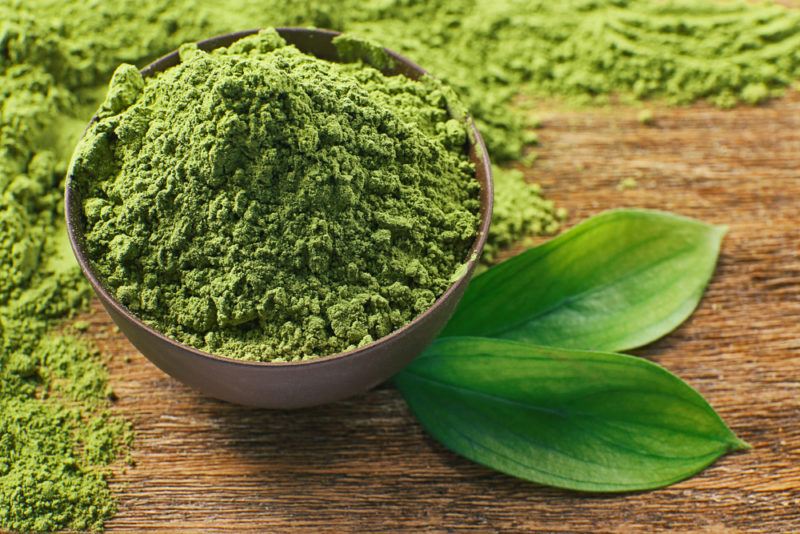
Matcha is a type of green tea, but it deserves a special mention. Unlike regular green tea, matcha plants spend some time growing in the sunlight and some time growing in the shade.
The tea leaves are treated differently too, as they are ground to form a fine powder, which is then used directly in your drink. So, unlike other types of tea, you are consuming the tea leaves themselves, giving you more potential benefits.
However, because matcha is more concentrated, you do need to pay attention to the amount you consume. One or two cups of matcha per day is generally the best balance of benefits versus risks. More than this could easily be harmful.
White Tea
White tea isn’t nearly as well-known as green or black tea. It’s an interesting type, as the tea leaves are harvested before they have fully opened. This creates a short harvesting window, which makes white tea a little more expensive than other types.
The amount of processing is minimal and most companies are cautious with their use of heat and moisture so that the tea leaves are dried without being damaged.
The minimal processing and lack of oxidation mean that the tea offers more antioxidants and polyphenols than other types. The health benefits could even be higher than with green tea (although, we can’t know for certain, as green tea has been studied much more extensively).
White tea mightn’t be what you expect, as you end up with a yellow drink that has a subtle flavor. This flavor is easily overwhelmed, so you need to be careful when pairing food with white tea.
Clearly, the name of the tea doesn’t come from its color. Instead, the name is a reference to small white hairs on the tea leaves.
What About Herbal Tea?
Herbal teas are an interesting case. They don’t come from Camellia sinensis, so they’re not considered true teas.
Instead, herbal teas are made from leaves, buds, petals, bark, or roots of a variety of plants. Because of this approach, each type of herbal tea has its own set of benefits and risks.
While the teas don’t have the compounds from Camellia sinensis leaves, they do offer some of the same benefits as true teas – such as being a low calorie drink that helps to keep you hydrated.
Still, you should be cautious with herbal teas too.
Most such teas are safe and have a variety of benefits. For example, chamomile tea can help to reduce stress and improve sleep, St. John’s wort tea may help with depression symptoms, and rooibos tea is thought to improve blood pressure and blood cholesterol levels.
But, even well-loved herbal teas have their risks, especially if you’re drinking multiple cups per day. Be especially careful if you have a health condition or are on medication, as there may be unexpected interactions.
Tea Blends
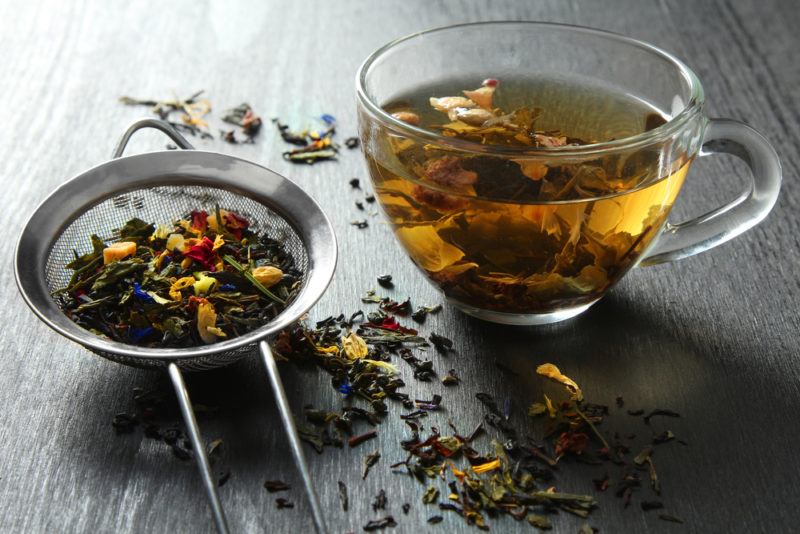
There are also tea blends to think about. These mostly include one type of true tea and various herbal tea ingredients. Some simple pairings include chamomile and white tea, lavender and black tea, or lemongrass and green tea.
There are also more complex products that might contain a variety of herbal ingredients and one type of tea. Chai tea is a classic example of this. The drink uses black tea as a base and combines this with spices like cinnamon and cardamom.
You can also find blends that include multiple types of true tea, like a blend of black tea and green tea. However, such blends are rare, partly because the tea types of tea come from different parts of the world. The teas also need to be carefully chosen to make sure that both types of tea produce a good result at the same temperature.
Benefits Of Tea
It’s clear that tea’s benefits vary depending on the type you choose. Studies consistently find that green tea is a powerful source of antioxidants and may promote health in many ways. Matcha tea is significant too, as it’s a more concentrated source of the compounds from green tea.
However, many benefits are similar regardless of the tea that you choose.
The Antioxidants
While matcha and green tea are seen as antioxidant powerhouses, antioxidants are present in other types of tea too. The important compounds are polyphenols, including theaflavins and catechins.
These antioxidants help to decrease free radical levels in your body. By doing so, they may reduce the risk of some types of disease. Drinking tea regularly could even help you to live longer.
Can Promote Weight Loss
Tea is made by steeping tea leaves in water (either hot water or cold water). This gives you a drink that’s mostly water and contains some compounds from the tea leaves. If you choose unsweetened tea, then the calorie content is negligible, making tea an excellent choice if you’re trying to lose weight.
That’s not the only helpful effect either. Some of the polyphenols in tea can help with weight loss too. There isn’t a large amount of evidence here, but some studies suggest that the compounds in tea could influence calorie absorption, metabolism, and the breakdown of fat.
The Caffeine Content
The caffeine content of tea is important in two different ways.
First, tea contains less caffeine than coffee. This is an important feature for anyone who is caffeine sensitive. So, if you find that coffee makes you jittery, makes sleep difficult, or increases your anxiety, tea could be the perfect alternative.
The type of tea you drink matters too. Black tea can contain a little under 50 mg of caffeine in an 8-ounce serving, while green tea contains less than 30mg. In contrast, an 8-ounce cup of coffee might give you close to 100 mg of caffeine.
Promotes Heart Health
Tea has been linked with a variety of heart health improvements, like reducing levels of LDL cholesterol and increasing HDL cholesterol.
The fact that tea is low in calories is helpful here too, as the drink can easily promote weight loss.
Keeps You Hydrated
One of the biggest benefits of tea is also the most easily ignored – the amount of water. Despite the importance of water, many of us don’t get enough of it every day. Or, we rely on products like Vitaminwater and sports drinks to stay hydrated, which are often filled with additives or sugar and aren’t nearly as healthy as they sound.
Tea, on the other hand, is a natural drink, where tea leaves and water are often the only ingredients. You know what you’re getting right from the beginning, making tea a more powerful choice all around.
May Improve Health In Other Ways Too
While tea has been consumed for a long time and has been heavily researched, there’s still much that we don’t know. This is partly because the drink is so complicated.
There are many different plant-based compounds, which can vary depending on the type of tea, where the tea is grown, how it is processed, and even how the tea is brewed. Each of those compounds could influence health in plenty of ways.
As a result, there’s only limited evidence for some potential benefits of tea, like how it might slow down tumor growth, improve insulin response, help people to age healthily, and lower their blood sugar levels.
Thankfully, we don’t need proof in all those areas to recommend tea. It’s already clear that the risks of tea are few, while there are many potential benefits. As long as you’re not sensitive to tannins or caffeine, you should find that tea either improves your health or has no effect on it.
The Risks Of Tea
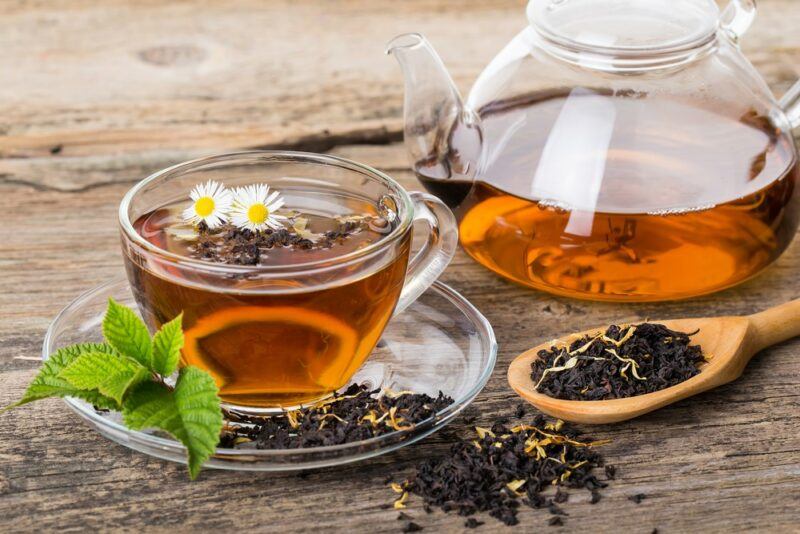
With so many positive features, it’s not surprising that tea is so popular. Yet, the hot drink has its limitations too and won’t be the best choice for everyone.
The Caffeine
We mentioned caffeine as a positive feature of tea, and it is, but caffeine isn’t always helpful. Caffeine can cause side effects like jitteriness, anxiety, problems sleeping, and heartburn, to name just a few.
The problems are strongest for people with high caffeine intake and for anyone sensitive to caffeine.
The best way around this is to decrease your caffeine intake. Doing so might take a little work, as it’s easy to consume more caffeine than you realize. Hot drinks from local coffee shops and prepared products from the grocery store are often larger and more caffeine-packed than you realize.
Decaffeinated tea can be an option if you’re sensitive to caffeine. This provides many of the same benefits as regular tea, but the caffeine content is much lower.
It Affects Nutrient Absorption
Tea contains tannins. These compounds are antioxidants and they’re one reason that tea can be good for you. However, tannins also affect the absorption of iron and, to a lesser extent, calcium.
The iron absorption effect is strongest for plant-based sources of iron, making the issue particularly significant for vegetarians. And, research suggests that long-term tannin consumption may have more significant effects on iron levels than is often assumed.
This pattern means that drinking tea regularly could lead to iron deficiency. To avoid this, try using some lemon juice with your tea and don’t drink the tea too close to your mealtime. Both approaches help to offset any absorption effects.
Keep an eye out for symptoms of iron deficiency too, including fatigue, pale skin, dizziness, cold hands and feet, and headaches.
Can Cause Side Effects
Most of the side effects from tea are related to the caffeine content, but some people get side effects from the tea itself too. This may be because of the tannins in tea, which can irritate your digestive system, giving you side effects like stomachache and nausea.
Some people experience the symptoms after having just a cup or two of tea. Others may be able to enjoy four or five cups without any issues.
If tea does make your stomach feel weird, try adding a little milk to your tea. Having a snack at the same time can help too.
Contaminants In Your Tea
When food is grown, there’s always the risk of contamination from the environment, including heavy metals, mycotoxins, and pollutants. Thankfully, the transfer of these compounds from tea leaves to your hot drink appears to be minimal, but experts do advise against overboiling your tea to be on the safe side.
You should also be careful about where your tea is sourced from. For example, some types of black tea grown in China are contaminated, while other sources of black tea may be safer.
In fact, tea from China and India is particularly vulnerable to contamination. There are safe products from these areas too, but it’s worth being a little more cautious of any tea that’s grown in China or India.
If you’re not sure where to begin, look for high-quality companies, ones that provide details about their growing and processing methods. Customer reviews can be a great source of information too, as customers tend to be vocal when they’re concerned about a product.
Is Organic Tea Healthier?
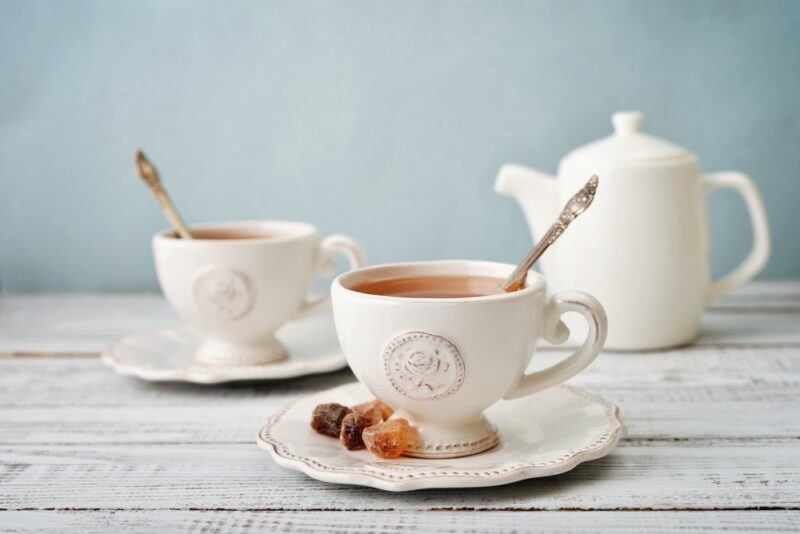
Organic products are often better for you, as farmers don’t heavily rely on pesticides. Plus, companies need to plan and meet various requirements to qualify for the organic label. Because of this, there’s a better chance that an organic product will be high quality, compared to a non-organic one.
Even so, organic tea can still be contaminated. This means that you still need to pay attention to where the tea comes from and the company that produces it.
How Much Caffeine Is In Tea?
The caffeine content of tea varies dramatically, influenced by the type of tea, its grade, the brewing time, temperature, and some aspects of how it is processed. Even so, the amount of caffeine is often much lower than a cup of coffee.
Black tea tends to have the most caffeine, at somewhere between 40 mg and 120 mg of caffeine in each 8-ounce serving. On the other hand, green tea has around 25 mg of caffeine for the same serving size.
Tea blends, including chai tea and combinations that use tea leaves along with herbal tea ingredients, often contain less caffeine per cup than unblended tea.
Finally, there are decaffeinated teas. These contain much less caffeine than regular tea, but they’re not completely caffeine-free. Instead, you’ll normally consume at least a few milligrams of caffeine per cup.
Decaffeinated tea often doesn’t taste as good as regular tea, as the decaffeination processes influence the flavor profile. However, products that use carbon dioxide to decaffeinate are generally the best for keeping the flavor intact.
And, of course, most herbal teas are caffeine free. The main exception is yerba mate, which may even contain more caffeine than black tea.
Is Decaffeinated Tea Healthy?
Perhaps surprisingly, caffeine is linked to health benefits. The chemical is even a key reason that coffee can be good for you.
However, many of the benefits from tea come from plant-based compounds and antioxidants, rather than from caffeine. Because of this decaffeinated tea can still be useful.
Green tea may be the most powerful type, as it is a rich source of antioxidants.
Still, you’ll probably see fewer benefits from decaffeinated tea than from regular tea, as some of the plant-based compounds are lost during decaffeination.
Which Type Of Tea Is Best?
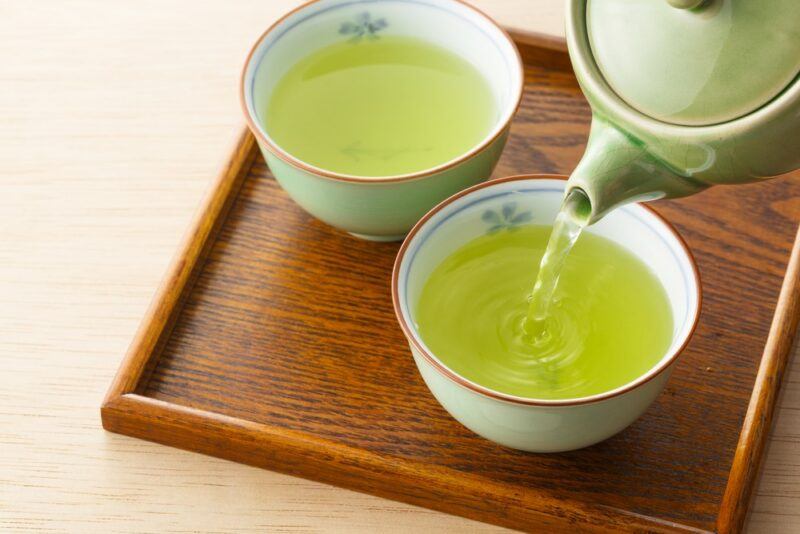
Green tea is often considered the single best choice for health (especially if you focus on matcha green tea). But, while green tea contains more antioxidants than the other options, all types of tea are good for you.
More than anything, you’re just getting different benefits depending on the tea you choose.
Take black tea as an example. While it contains fewer antioxidants than green tea, the antioxidants do still provide health benefits. Plus, black tea contains more caffeine than green and caffeine can have many positive effects.
Rather than choose a single type of tea to focus on, why not change types regularly? This would give you access to the full range of plant-based compounds. You could even include herbal teas in the mix.
Final Thoughts
There are plenty of differences between the various types of tea, including areas like flavor, oxidation, caffeine levels, and even how the tea is used. However, many of the benefits remain the same or similar regardless of the type of tea that you choose.
All tea is low in calories and provides you with plenty of antioxidants. Tea may improve your health in a variety of ways too, like lowering your risk of heart disease and promoting weight loss.
Tea is also an easy drink to find and enjoy.
Even so, regular tea drinkers should pay attention to how their body responds. Some people are sensitive to the caffeine or the tannins in tea. If this is the case for you, you might need to switch to decaf or avoid tea entirely.
Frequently Asked Questions
Is Tea A Diuretic?
Caffeine has a diuretic effect, which is why a cup of coffee often makes you need to pee. This effect is true for any caffeine-containing tea. However, tea is typically lower in caffeine, so the diuretic effect tends to be lower as well.
This diuretic effect isn’t an issue, as you’re still taking in more liquid than you lose. As a result, even coffee tends to be slightly hydrating, rather than dehydrating.
Which Tea Has The Most Caffeine?
Black tea and pu-erh teas have more caffeine than other types of traditional tea. However, there’s also matcha. This is even higher in caffeine because it’s much more concentrated. In particular, you’re consuming the full crushed tea leaves with matcha, which isn’t the case with other types of tea.
There’s also yerba mate. This is a type of herbal tea, yet it manages to have close to twice as much caffeine as black tea.
Which Tea Has The Least Caffeine?
White tea is the most common low caffeine tea. Then there’s purple tea. This is a rare type of tea and it’s even lower in caffeine than white tea. It could offer more health benefits than green tea too, due to the high antioxidant content.
Most types of herbal tea are also low in caffeine, often containing no caffeine at all. Or, why not turn to decaffeinated tea, which has had the caffeine removed chemically. While decaffeinated tea still contains tiny amounts of caffeine, it’s safe for most situations where you need to be cautious with caffeine intake.
Is Tea Better Than Coffee?
Tea is often seen as being healthier than coffee, partly due to the antioxidants and lower caffeine content. However, coffee has many benefits too. It’s even been associated with a longer life.
In the end, the healthiest type of drink is simply the one that works best for you. If you tolerate caffeine well, then coffee could easily win out, especially has some surprising positive health effects. If not, then why not focus on tea instead?
Is Tea Good For Diarrhea?
Studies suggest that tea helps with gut health in a number of ways, like keeping your bowel movements consistent and reducing the risk of diarrhea. It may also help to settle your stomach, while the water in tea keeps you hydrated.
However, some people find that the caffeine irritates their stomach and makes symptoms worse instead. If this is the case for you, it’s best to focus on decaffeinated or herbal tea.

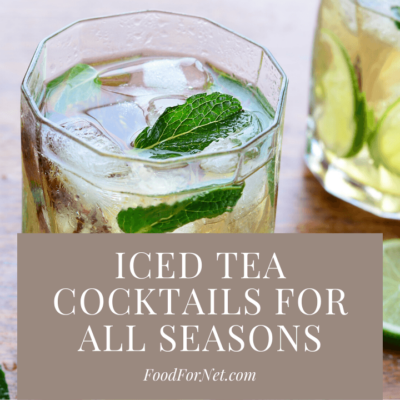
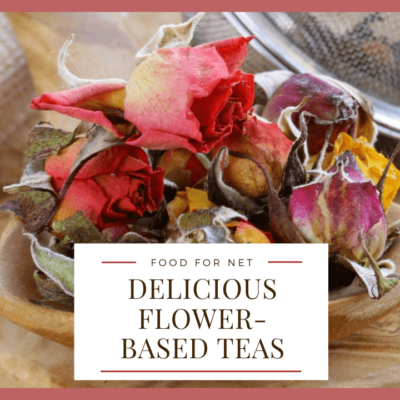
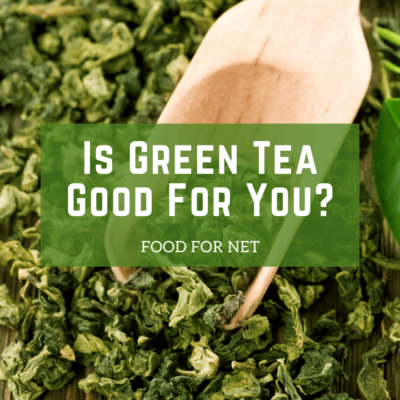
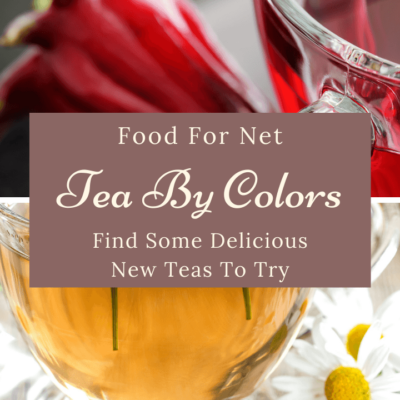
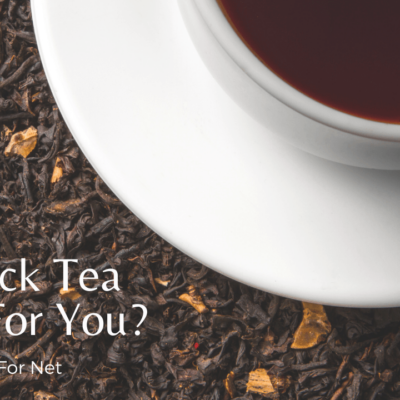
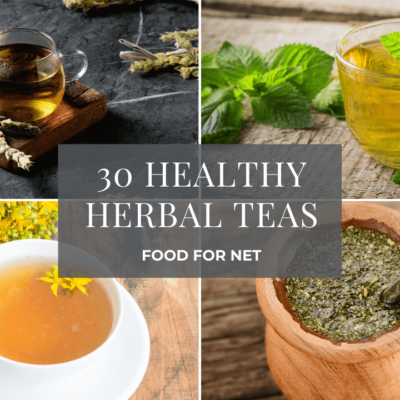

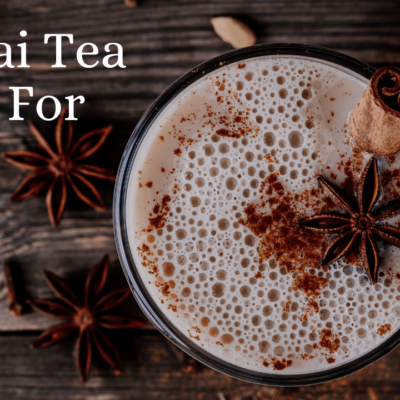

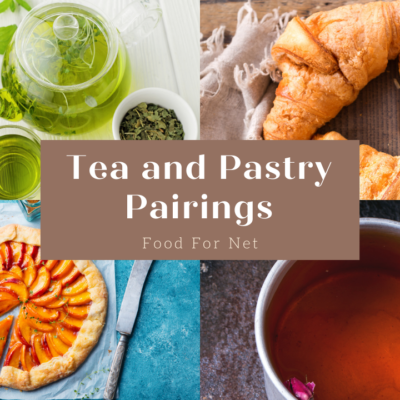
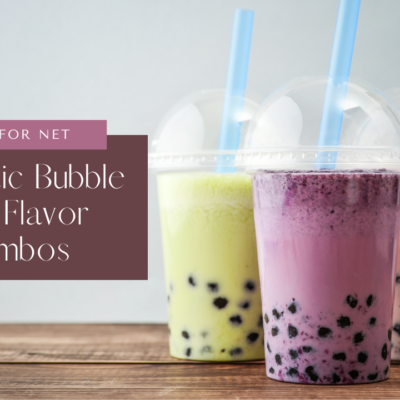

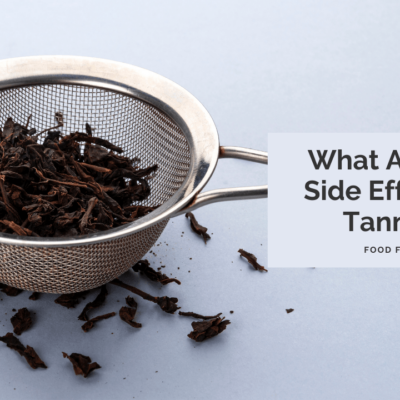
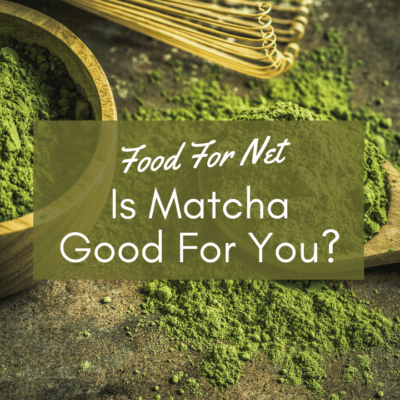
 Is Vitaminwater Good For You?
Is Vitaminwater Good For You?
Leave a Reply